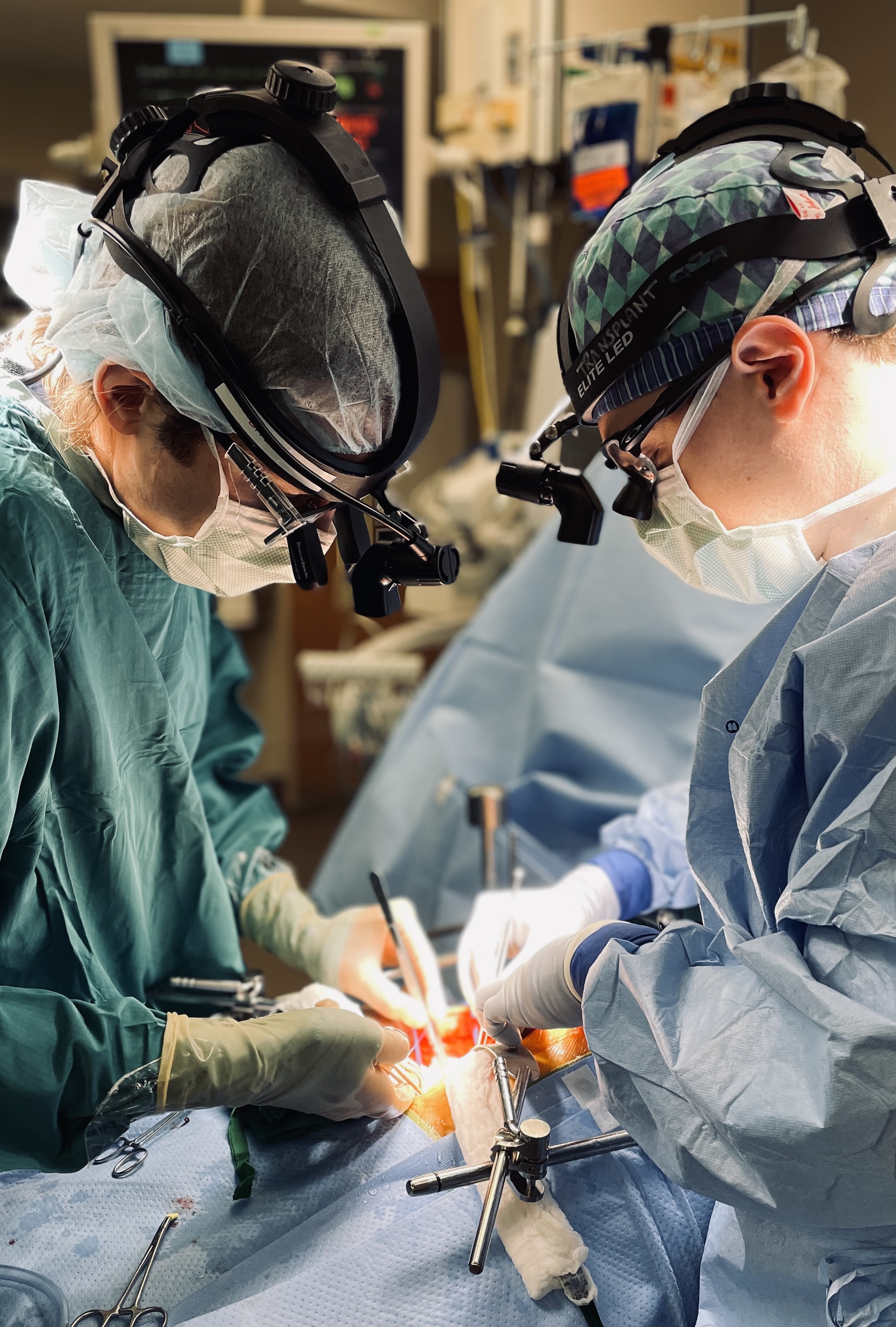Overview
The Emory Abdominal Transplant Surgery Fellowship has four active fellows per year, accepting two new fellows annually. Fellows alternate between four different services, usually in two-to-four-month-long blocks at a time. Our program offers American Society of Transplant Surgeons (ASTS) certification in kidney and liver transplantation, as well as the option of attaining an ASTS certificate in hepatobiliary surgery.
Kidney/Pancreas Transplant Service
-
The fellow will perform adult kidney and pancreas transplants
-
The average fellow will graduate having performed 130+ kidney transplants and six to 12 pancreas transplants.
-
The fellow will oversee all inpatient care of perioperative kidney and pancreas transplant recipients, overseeing a team of PGY1 and PGY4 surgical residents.
Liver Transplant Service
-
The fellow will perform adult liver transplants (including simultaneous liver-kidney transplants, DCD donor transplants, split livers, and participation in living donor liver transplants) and oversee all inpatient care of perioperative liver transplant recipients.
-
The fellow will perform all transplant surgical evaluations of pre-transplant inpatients.
-
The fellow will work with a team of dedicated liver transplant nurse practitioners and physician assistants.
-
The average fellow will have performed ~75 liver transplants as operative surgeon by the end of their fellowship.
Deceased Donor/ Outpatient Service
-
The donor fellow will perform deceased donor multi-organ procurements (from both brain-dead donors and donors after circulatory death).
-
Additionally, the fellow on this service will spend three half-days in outpatient clinic, taking care of post-operative liver, kidney, and pancreas transplant patients.
-
First-year fellows are typically proctored by second-year fellows on the donor rotation, with the goal of having the fellows fully independent before the end of their first year of fellowship.
-
The deceased donor fellow will cover every other weekend for the liver transplant fellow, so that each fellow has four "off days" per month (the kidney transplant fellow splits weekends with the PGY4 surgery resident, ensuring that they also have four "off days" per month). The deceased donor fellow also covers vacations for the other fellows, ensuring that all fellows have three weeks of vacation per year.
Living Donor/ Peds/ Flex Service
- The Flex fellow will perform laparoscopic living donor nephrectomies, with the average fellow graduating with 50-55 laparoscopic donor nephrectomies.
- The Flex fellow is also available to cover deceased donor procurements (either as the senior fellow proctoring a junior fellow, or as a junior fellow being proctored by a senior fellow on the deceased donor rotation) and kidney or liver transplants that can't be covered by other fellows.
- The Flex fellow will also perform all pediatric kidney and liver transplants at the Children's Hospital of Atlanta, one of the busiest pediatric transplant centers in the nation.
Hepatobiliary Experience and Case Volumes
For interested fellows, we offer the opportunity to gain HB surgery certification. These fellows will spend one or two months during their Procurement/Outpatient or Pediatric/Swing service time to rotate on the hepatobiliary surgery service. During this elective month, fellows will lead a team of PGY1 and either PGY3 or PGY4 surgical residents, performing liver resections and pancreas resections. Many of our transplant surgery fellows complete enough cases on this rotation to earn their HB surgery certificate from the ASTS.
| Year | 2022 | 2023 | 2024 |
| Kidney | |||
| Adult | 372 | 354 | 410 |
| Pediatric | 15 | 24 | 21 |
| Living Donor | 103 | 97 | 136 |
| Liver | |||
| Adult | 93 | 104 | 167 |
| Pediatric | 19 | 6 | |
| Pancreas | |||
| 7 | 11 | 7 | |


